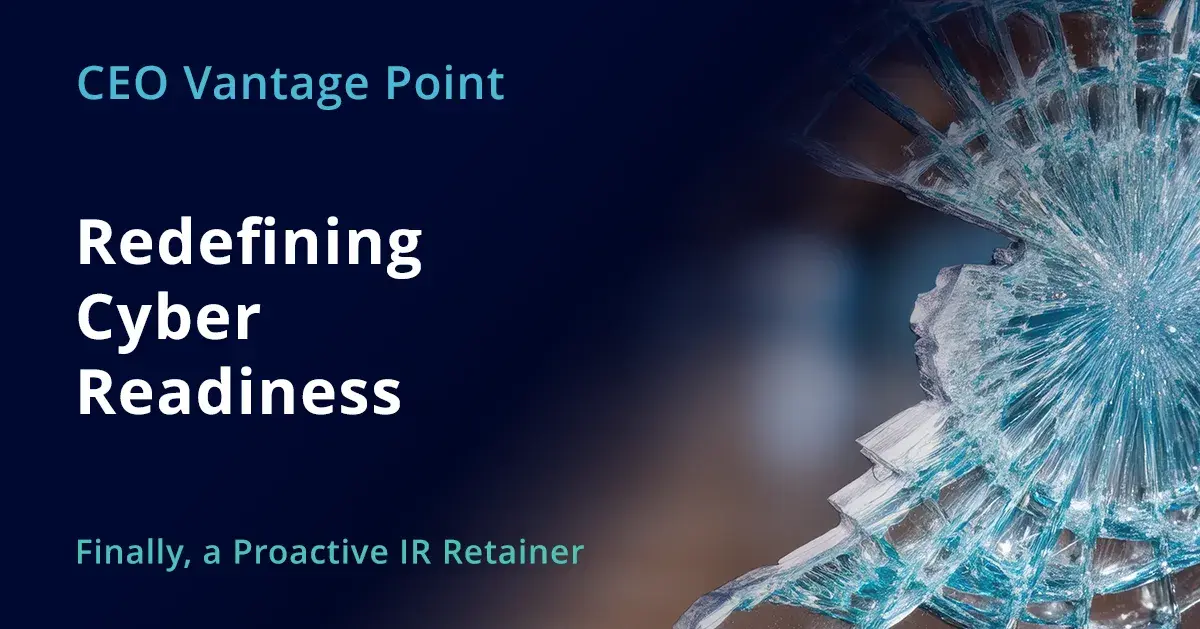
Traditional IR Retainers operate like outdated burglar alarms. If someone breaks in, your service provider is notified, they call the police, and you wait.
Traditional Incident Response Retainers
In cybersecurity, timing is everything. The longer it takes to detect and respond to an attack, the greater the damage, downtime, and recovery costs. For years, organizations have relied on Incident Response (IR) Retainers—agreements with third-party firms that promise expert help after a breach. That model worked when threats moved slowly. But today’s attacks unfold in minutes, not days. By the time the alarm sounds, the intruder may already be gone—along with your data.
The Problem with Reactive Incident Response
Traditional IR retainers operate like outdated burglar alarms. You install sensors, and if someone breaks in, a siren sounds. Your security service is paged, they call you, then they call the police. You hope help arrives in time—but until then, you’re in the dark.
This reactive model is no longer sufficient. When a cyber incident occurs, your Incident Response partner must deploy tools, collect logs, and reconstruct events from whatever fragments remain. By that point:
- Critical forensic evidence may be lost
- Logs may have rolled over or been deleted
- Network telemetry (the attacker’s digital fingerprints) may no longer exist
- Your data is already gone (exfiltrated)
You’re left guessing instead of knowing.
It’s no surprise that ransomware recurrence remains high.
A Smarter Approach: Continuous Visibility and Forensic Readiness
PacketWatch Rapid Response Assurance (RRA) replaces the reactive model with a proactive one. Think of it as upgrading from a motion sensor to a smart camera system—one that records continuously, preserves evidence, and provides real-time visibility.
At onboarding, PacketWatch installs a dedicated Network Sensor that securely transmits seven days of rolling network metadata to the PacketWatch Cloud. This telemetry acts as a digital video archive, capturing everything needed for forensic investigation.
When an incident occurs, PacketWatch analysts:
- Rewind your network activity to trace the intruder’s path
- Correlate activity across systems and time
- Maintain continuous visibility across devices
- Respond immediately using actual verified data—not assumptions
It’s the difference between guessing what happened and knowing exactly what occurred.
Proactive Threat Hunting: Surveillance with Purpose
PacketWatch doesn’t wait for alarms. Each quarter, cyber analysts conduct proactive Threat Hunts using stored telemetry to identify hidden adversary activity, policy gaps, and early indicators of compromise. RRA clients receive a quarterly Executive Brief—a concise, actionable summary of our threat hunt findings and recommendations.
This continuous cycle of visibility, analysis, and improvement strengthens your security posture over time—something Traditional IR retainers simply don’t provide.
Speed to Resolution: Evidence in Hand, Not Hours Away
When a breach occurs, PacketWatch’s 24x7 Incident Response hotline responds immediately. Unlike most IR teams, PacketWatch already has forensic visibility. There’s no delay for access permissions, tool deployment, or endpoint agents. The data is already in place, ready for triage within minutes.
This enables:
- Rapid containment of active threats
- Accurate root cause analysis
- Timely incident reports and remediation plans
Other providers may take days to reach the point PacketWatch starts from in the first hour.
Comparing the Models
|
Traditional IR Retainer |
Rapid Response Assurance |
|
|
Detection |
Alerts only after an incident |
Continuous network visibility |
|
Evidence |
Often incomplete, deleted, or lost |
Full week of preserved network telemetry |
|
Response Time |
Hours to days before the investigation starts |
Immediate triage with data already in hand |
|
Forensic Readiness |
Limited |
Continuous, preconfigured collection |
|
Threat Hunting |
After the fact |
Quarterly proactive investigations |
|
Visibility |
Event-driven |
Always-on situational awareness |
Real-World Parallel: False Alarms vs. Verified Insight
At a nonprofit I support, we recently experienced a string of false burglar alarms. Each time, the monitoring company called our on-duty contact in the middle of the night. But with our new camera system, the volunteer could instantly review the footage and confirm—no breach, no activity, no threat.
The old system was reactive and unreliable. The new one was smart, fast, and self-verifying.
The same logic applies here with cybersecurity. Why rely on outdated alarms when modern systems can see everything, verify instantly, and reduce noise?
Conclusion: Be Ready Before the Alarm Rings
Cybersecurity today demands more than a response plan—it requires readiness, evidence, and speed. Traditional IR retainers are like old alarms: noisy, slow, and ineffective. PacketWatch Rapid Response Assurance is the modern alternative: intelligent, proactive, and always recording.
When the next cyber incident strikes, will you be the one hearing the siren—or the one already taking action?
Contact Us today to proactively approach your cyber readiness.
Chuck Matthews is the CEO of PacketWatch, a cybersecurity firm specializing in Threat Hunting and Incident Response, leveraging their proprietary network monitoring platform. With over 35 years of executive experience, Matthews excels in aligning technology with strategic business goals and is a recognized leader in cybersecurity. Chuck has contributed to numerous publications and media outlets, focusing on topics like cybersecurity legislation and best practices.
Posts by Tag
- CEO Perspective (30)
- Cybersecurity Resilience (12)
- Incident Response (12)
- Compliance (10)
- GRC (9)
- Vulnerability Management (7)
- Best Practices (5)
- Threat Hunting (5)
- Cyber Insurance (4)
- Artificial Intelligence (AI) (3)
- Full Packet Capture (3)
- HIPAA (3)
- Artificial Intelligence (2)
- Network Visibility (2)
- Ransomware (2)
- Critical Vulnerability (1)
- Cybersecurity Threats (1)
- Event (1)
- Legal Industry (1)
- Manufacturing Industry (1)
- Multi-factor Authentication (1)
- Security Risk Assessment (1)
- Threat Intel (1)
- Zero-Day (1)

.webp) Chuck Matthews
Chuck Matthews